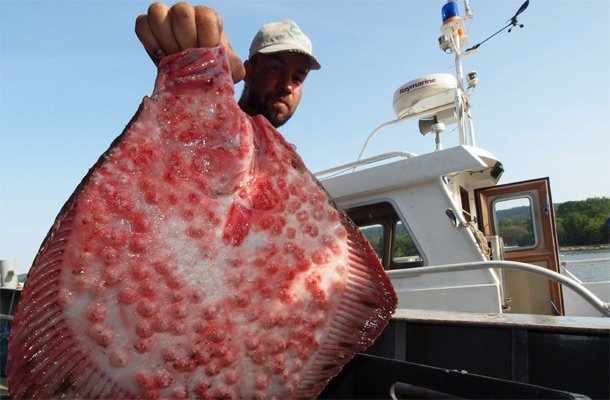Seafood, especially fish, is an indispensable source of nutrients that are the foundation of balanced eating. It contains high-quality proteins, lipids, essential biogenic elements and fat-soluble vitamins. Fish is very rich in polyunsaturated fatty acids that the human body can not synthesize on its own. Among them are such valuable omega 3 and omega 6 fatty acids. For all these reasongs, fish is recommended by the World Health Organisation as an essential healthy food.
Meanwhile, fish is a very good bioindicator for assessing pollution because it absorbs most of the toxic substances such as heavy metals and persistent organic pollutants in water. Water basins, including Bulgaria’s Black Sea, nowadays are full of many contaminants that accumulate mainly in the adipose tissue of fish. And the fattier the fish, the greater the concentration of toxic substances in it. Naturally the question arises about the safety of fish as food, and what is ratio between the benefits and risks of seafood. Here are the answers of scientists from the Department of Chemistry at the Varna Medical University, led by Professor Mona Stancheva, team leader.
The study tracks the contents of persistent organic pollutants (POPs), including DDT residues and heavy metals in Black Sea fish. The survey covers eight years, during which many experimental data was collected on industrial pollution in the Black Sea fish. The findings from the analyzes are the first ever large-scale study of food in this country set in Bulgaria's commitments under the Stockholm Convention to monitor the presence of POPs and heavy metals in the air, soil and food.

© Photo: www.mu-varna.bg
"We studied ten of the most consumed fish species for presence of POPs and DDT residues, explains Prof. Mona Stancheva. We also examined them for the presence of ten chemical elements, including the highly toxic mercury, lead, cadmium and arsenic, which accumulate in marine organisms and especially in fish. The study is based on the standards established by the EU regarding POPs. We did a comparison of contaminants and heavy metals in studies of our colleagues from Turkey. We also compared our data with those from the Marmara Sea, the Mediterranean, and published data from the U.S.. It turns out that our fish are cleaner and least affected by industrial pollution compared to the Mediterranean or oceanic species. The values of all studies confirm that our fish is a really valuable and safe food. And despite this fact, according to studies in Bulgarian nutritionists, fish consumption here is small compared to the WHO norms, even in coastal areas. To assess the quality of Black Sea fish as food, we did other studies. They regard the nutritional value and content of polyunsaturated fatty acids such as omega 3 and omega 6, we also studied fat-soluble vitamins. We have a comprehensive assessment of the quality of Black Sea fish that can serve as a database, as so far such studies have not been done." The study was conducted with the financial support of the Scientific Research Fund of the Ministry of Education. Using high-tech equipment, scholars tested the most frequently consumed Black sea fish species: sprat, gobies, mackerel, pontic shad, herring, mullet, bonito, turbot, bluefish, and garfish. "We have taken samples from different places along the Bulgarian seaside, Prof. Stancheva says. Starting from the north with Krapetz, Durankulak,Kaliakra, the Varnaregion and going south to Nessebar, Burgas, Primorsko. Our coast is not very big, so there is not much difference between the samples. We were very careful with the northern region, because there flows the Danube. We compared our results with a study made prior to 2000 of shells and sea snail. According to this comparison, in recent years the values of toxic metals such as mercury, lead, cadmium and arsenic appear to be lower than those of previous years. Unfortunately, no systematic studies were made on the most consumed fish species before 2000. Therefore, this study was divided into two stages, 2004 -2007 and 2009 - 2011. The results showed that in the second stage - these have lower values than in the previous. Thus, we concluded that in Bulgaria’s Black Sea coast, although it is a closed sea, the content of toxic substances has decreased. We explain this fact by saying that many industrial producers that were polluting the Varna Lake and the Black Sea, have not stopped operation. For example, the concentration of lead in 2011 was ten times lower than in 2004. The same is true for cadmium and mercury, so there is nothing to worry about when we eat Black Sea Fish."

© Photo: BGNES
The future plans of the team of Prof. Stancheva are to make a detailed survey of the Danubian fish. The study will include freshwater fish, as well as those grown in nurseries. Then the team will compare the results with those of saltwater fish.
English version: Rossitsa Petcova
Bringing youthful energy, colour and cheer to the Bulgarian National Radio studio, students from the Bulgarian Sunday School Dr Petar Beron arrived from Larnaca. The group from Cyprus — 16 pupils aged between 14 and 19 — is currently on a week-long..
At the outset of the war between Russia and Ukraine, the Bessarabian Bulgarians across all lands marked their national day with prayers for peace. Nearly four years on, burdened with even greater sorrow, they commemorate that special day scattered..
Switzerland is one of the smaller Central European countries on the Old Continent. It consists of twenty-six cantons with a population of about 9 million people, according to the latest Eurostat data from 2024. 41% of those residing in the country are..
Everyone knows that as soon as temperatures start going down it is pickle-making season. Making preserves at home is a time-honoured and widespread..
Minister of the Environment and Water Manol Genov has granted two centuries-old trees – each of which approximately 200 years old – protected status,..

+359 2 9336 661
